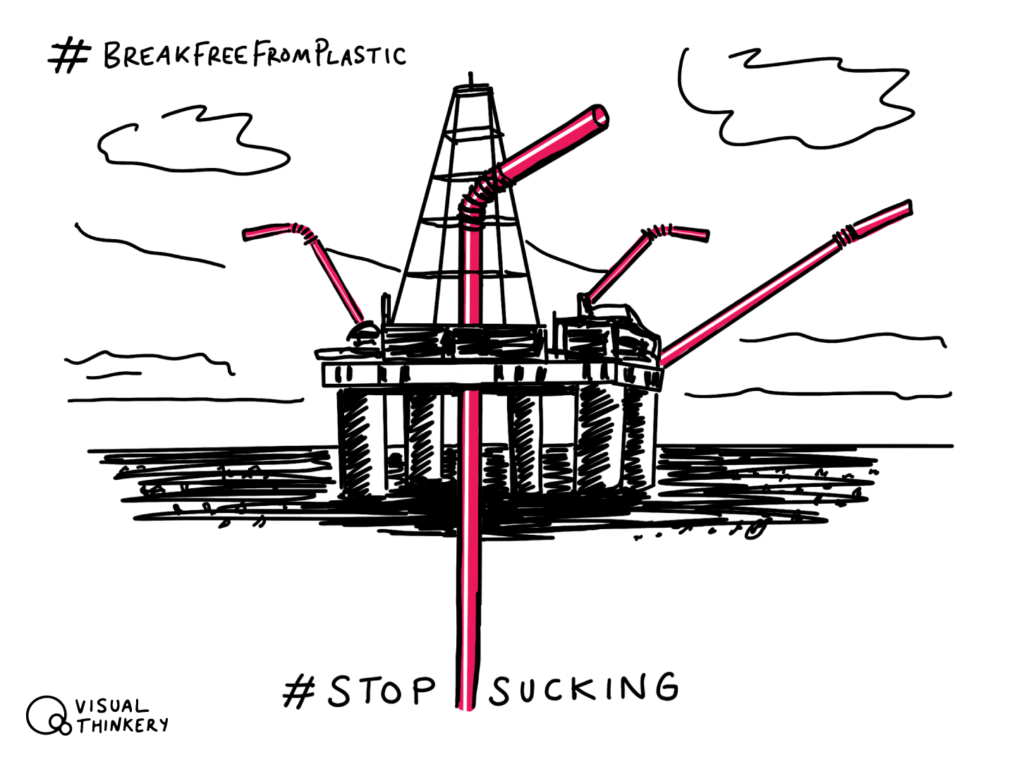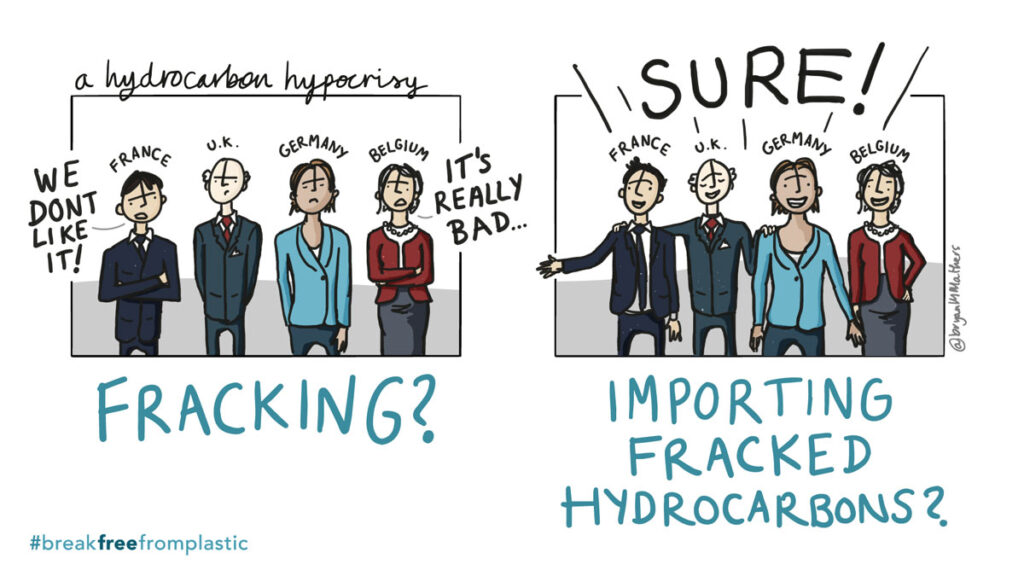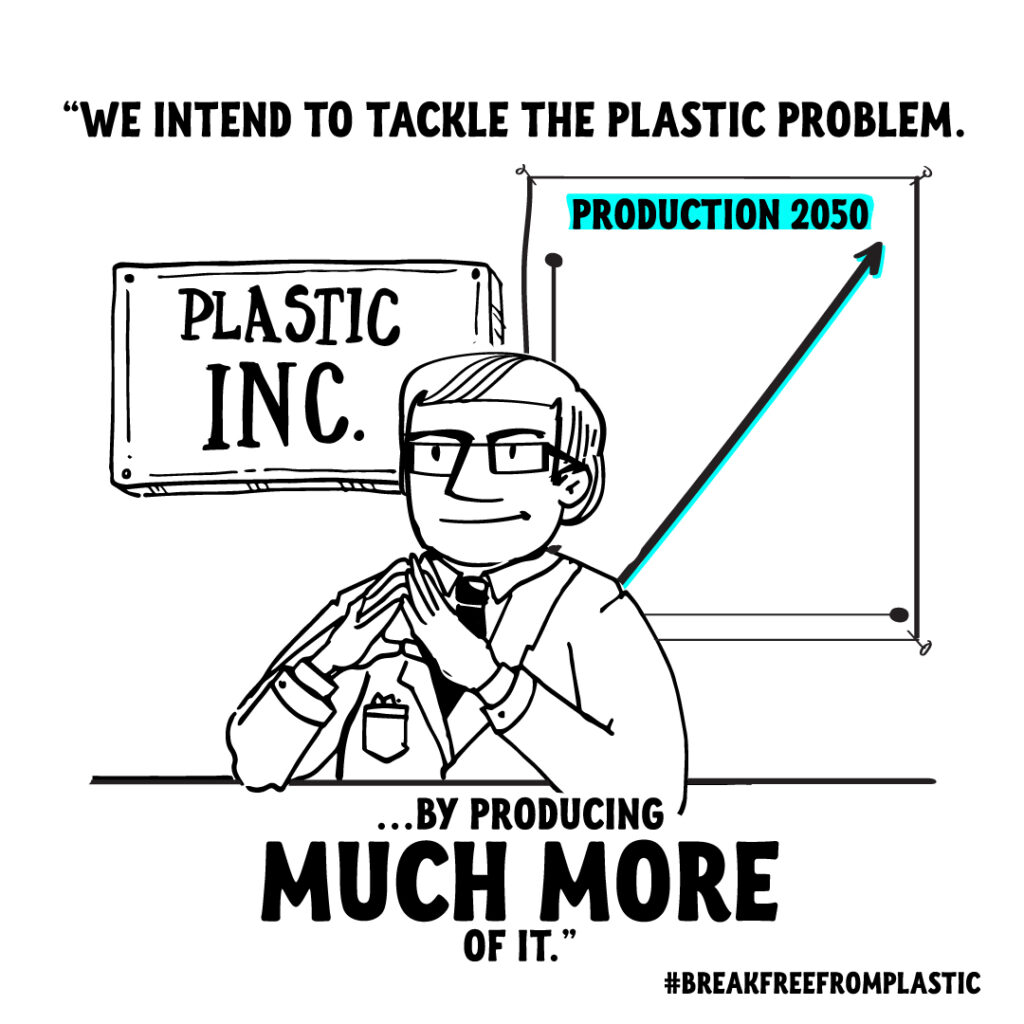Part 3 – Global Actions
If you haven’t already read it, I encourage you to begin with the first post in this series and the heavy disclaimer that the content here is my own and not representative of any organization(s) with which I might be associated.[1]
I’ve mentioned a few times in previous posts that I recently attended a conference in New York City that focused on oil and gas development – and how the philanthropic community should be responding to the growing issues of climate change, pollution, and health impacts caused by our dependence on fossil fuels. It was incredibly powerful to be there with so many other individuals and organizations focused on protecting the health of our planet and the people on it. Reviewing my notes for work (and this post), I reread some inspiring quotes and messages I had scribbled in the margins of my notebook. One came from a man from Seoul who asked where I was from. When I told him Pittsburgh, he smiled and said “Ahh, Rachel Carson’s hometown.”
Yes, Rachel Carson’s hometown, where, 60 years after Silent Spring was published,[2] we’re still fighting against threats of environmental pollution and health harms from multiple sources. Just this week, County Executive Rich Fitzgerald vetoed legislation that would ban fracking in Allegheny County parks, citing the economic potential of drilling.[3] We also know that a new destination for fracked gas from our region will be the Shell ethylene cracker in Beaver County, where it will be made into plastic. Since we’re only halfway through Plastic-Free July,[4] there couldn’t be a more appropriate subject.
The first two posts in this series looked at the misnomer of “recycling” when it comes to plastic, both in the traditional sense of creating new plastic products in a closed-loop cycle (which rarely happens) and in the “chemical recycling” sense, which is largely a plastic-to-fuel process (which is presented in a positive light thanks to use of the “R” word). This week I promised a look at what people across the world are doing to combat the plastic-based economy, and that is why I dove back into my notes from New York.

Image credit: [5]
Fossil Fuel Non-Proliferation Treaty
The thing to keep in mind through this whole conversation is the interdependence between plastics and fossil fuels. For example, at the conference, I heard a statistic that there would need to be 1000 new fracking well pads every five years in the Marcellus Shale formation (where we are) to supply the cracker plant in Beaver. But we are already at a point where we need to be drilling fewer, not more, wells; we need to be creating less, not more, plastic.
I met a very friendly and outgoing – but still humble and unassuming – woman named Tzeporah Berman at the conference and sat with her on a few occasions, later to find out that she has a TED talk with almost 2 million views.[6] The focus of her work (and her talk) was to limit, not fossil fuel emissions, but fossil fuel production. It was a fascinating paradigm shift for me, as someone who spends my days discussing emissions from wells, power plants, refineries, etc., to realize that when we talk about better regulation, it is almost always related to how much we’re burning and releasing into the air, and almost never about how much we’re extracting from the ground.
A very clear point she made is that even without starting any new coal, oil, or gas projects, we still have far more in existing projects than we can use if we want to stay below the Paris climate accord target of 1.5 degrees Celsius [7] for global temperature rise. Despite that fact, we – globally – have planned for more new production beyond what we already have and far more than the limit of what we want to be using. And as long as we keep producing it, we’re going to keep using it. This trend echoes the idea I touched on in last week’s post: if we build it, they will come. Investing in any kind of new projects or infrastructure that produces or makes use of fossil fuels, be it well pads, gas-fired power plants, cracker plants, or blue hydrogen facilities (more to come on that in a later post), it is an active commitment to continue using that type of fuel, no matter the consequences.

Image credit: [8]
To that end, Berman’s current effort is the Fossil Fuel Non-Proliferation Treaty, which calls for an end to all new exploration and production of coal, oil, and gas; an equitable, global phase-out of what we already have extracted; and support for a just transition to clean sources of energy, particularly in communities and countries that are more dependent on fossil fuels.[9] It is a novel concept: if you don’t have it, you can’t burn it… or turn it into plastic.
Fighting Plastics
Plastics were not the primary issue at this conference, but they were a significant part of the conversation, as the plastics industry is on track to quadruple production by 2050.[10] There are more initiatives coming online every day to combat this massive and growing industry. As I indicated in a post a few weeks ago when I was feeling particularly disheartened, it is important for all of us to keep pushing, even just a little if that’s all we can do.[11] The more people across the globe who are educated and active on the subject, the more political will there will be to push back against a well-funded industry whose product is so intertwined in our lives we literally have pieces of it in our bodies.[12]
A celebrated action that made the news in March of this year was a resolution from the United Nations to “end plastic pollution” across the world. This ambitious goal will begin with a two-year planning process to reach a binding, international agreement by 2024. Efforts will target the production, design, and disposal stages of the plastic lifecycle, and an intergovernmental committee will investigate options including plastic alternatives, technological improvements, and international collaborations that can support solutions.[13] Though this step is a potentially exciting prospect, it is important to remember that any outcomes are still a long way off. It will take multiple years to create a plan, get it adopted by a global community, and then begin putting it into action. It does not help us today.

Image credit: [14]
For people who are taking more immediate, small-scale – and therefore nimble – action, there is the Break Free From Plastics movement. This global organization was founded in 2016 and now has more than 11,000 member organizations and individuals across the world taking steps to reduce plastic at all stages of the lifecycle, from extraction to disposal. Their resource hub provides toolkits for individuals and groups wanting to get involved in various ways: you can learn how to conduct a brand audit, support zero waste legislation, set up education programs at schools, host documentary screenings, and more.[15]
This type of support – or the resources required to put these steps into action – does not come cheap. Fortunately, the Plastic Solutions Fund exists. They are a philanthropic organization devoted specifically to the growing global plastics issue, created on the heels of the Break Free From Plastics movement. The group supports ambitious global goals of achieving peak plastic use by 2025 and eliminating non-essential plastic uses by 2035. Their funding initiatives address problems associated with the various stages of plastic production, use, and pollution.[16] One of their small grants went to Food and Water Watch here in Allegheny County to help pass zoning ordinances to prevent fracking projects in Allegheny County. So far, they have been successful in over a dozen communities.[17]
Meanwhile, we will see what happens with the fracking ban in our county parks. Although Fitzgerald vetoed the bill, it is possible there will be enough support to override his action. If you live in Allegheny County and care about this issue (and if you don’t by now, I haven’t been doing a good job as a writer), I encourage you to reach out to your representative on County Council and let your feelings be known.
~
July is only half over, and there are still many more opportunities for reducing plastic consumption and waste. Tell us about your efforts below!
As always, thanks for reading!
[1] https://radicalmoderate.online/plastic-free-july-2022-part-1/
[2] https://www.goodreads.com/book/show/27333.Silent_Spring
[4] https://www.plasticfreejuly.org/
[5] https://www.breakfreefromplastic.org/plastic-production/
[6] https://www.ted.com/talks/tzeporah_berman_the_bad_math_of_the_fossil_fuel_industry?language=en
[7] https://unfccc.int/process-and-meetings/the-paris-agreement/the-paris-agreement
[8] https://www.breakfreefromplastic.org/fracking/
[9] https://fossilfueltreaty.org/home
[11] https://radicalmoderate.online/this-is-fine/
[14] https://www.breakfreefromplastic.org/plastic-production/
[15] https://www.breakfreefromplastic.org/
[16] https://plasticsolution.org/
[17] https://plasticsolution.org/project/stopping-the-petrochemical-hub-buildout-in-pennsylvania/
0 Comments